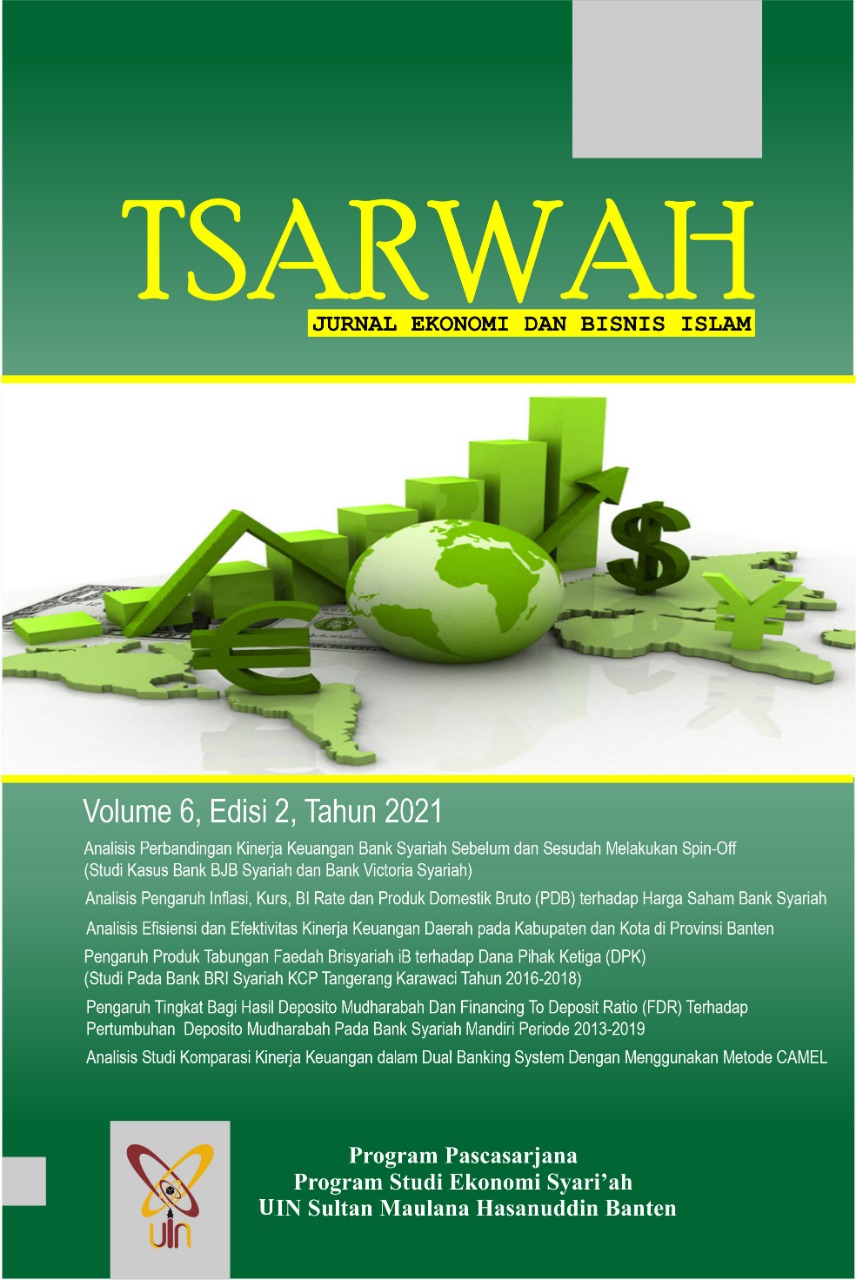Effects of Inflation, Exchange Rate, BI Rate, and GDP on Islamic Bank Stock Prices
DOI:
https://doi.org/10.32678/tsarwah.v6i2.6711Keywords:
Inflasi, Nilai Tukar, BI Rate, PDBAbstract
The state of a country's economy will affect the investment climate, as evidenced by
macroeconomic factors such as inflation, exchange rates, the BI rate, and economic growth
measured by GDP. This study aims to examine the impact of inflation, exchange rates, the
BI rate, and GDP on Islamic banking stock prices, both individually and collectively. The
descriptive quantitative research method was used in this study. The following data
analysis techniques were used in this study: 1. Classical Assumption Test, 2. Hypothesis
Test (t-test and F-test), and 3. Correlation and Determination Coefficient Test. The
research's findings are as follows: 1. The stock price of an Islamic bank is significantly
impacted negatively by partial inflation, 2. Partially, the BI Rate has a considerable
beneficial impact on the share price of Islamic banks while having a favorable and
negligible effect on the exchange rate. 4. The share price of Islamic banks is not affected
by GDP in total, but it is affected simultaneously by inflation, exchange rates, the BI Rate,
and GDP. Sharia shares are important and have a significant association with a percentage
of 39.8%.
Downloads
Downloads
Published
Versions
- 2023-11-04 (3)
- 2022-12-28 (2)
- 2022-08-29 (1)
Issue
Section
License
Copyright (c) 2021 Ajron Safitri, Efi Syarifudin

This work is licensed under a Creative Commons Attribution-ShareAlike 4.0 International License.



























